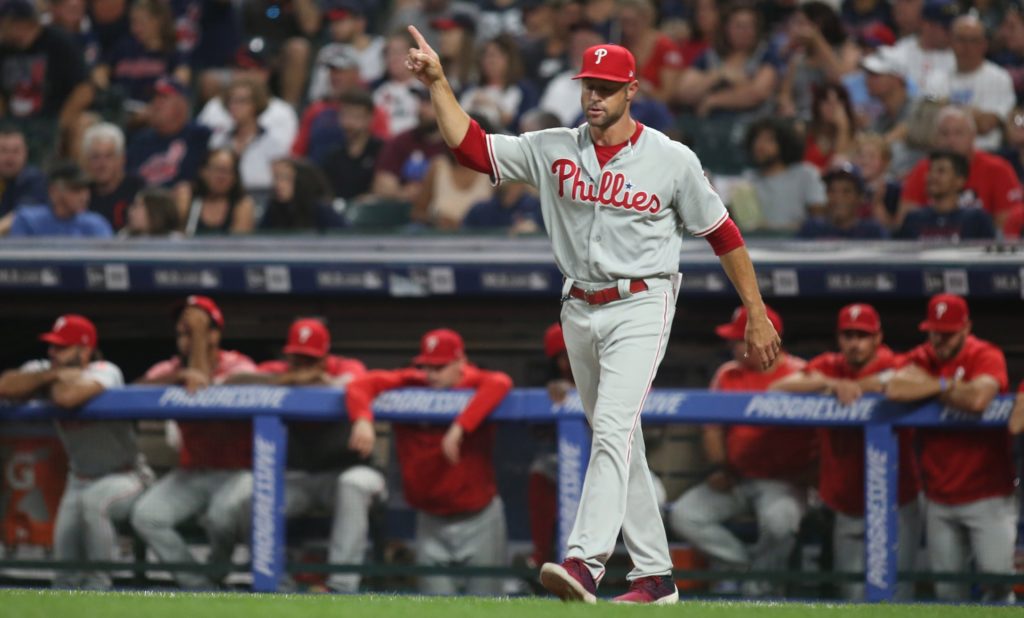Ad Disclosure
Was Real Estate Agent Gabe Kapler Tasked With Selling a Structurally-Flawed Home?
By Bob Wankel
Published:

The Phillies were officially eliminated from postseason contention Tuesday afternoon, mercifully concluding what mostly felt like an inevitable three-month-long death march.
They have now missed the postseason for the eighth consecutive year and are left to play out a meaningless string of games that determines nothing other than the organization’s ability to laughably boast about the team’s first “winning season” since 2011.
In sports, we typically assign blame when failure becomes official, but the Phillies’ situation is unique in that those who have followed this team, including both those inside and outside of the organization, have been assigning varying degrees of responsibility for this bitter disappointment since early July.
While we are not yet privy to how the team’s top decision-makers have evaluated this mess, externally, the brunt of the blame has been directed at the team’s manager. Those of you that have read this site throughout the course of the season know that I believe it’s borderline ridiculous to primarily fault Gabe Kapler for how this has all played out, and you know the reasons why.
From this perspective, an injury-plagued bullpen – one that is now rife with league-average stopgaps – and a laughably poor starting rotation are the primary factors why this team is so far from where it had hoped to be. As for the blame, I’d aim a little higher and direct it at a front office responsible for the woeful miscalculation about the evolution of its pitching talent and creative inability (or perhaps plain unwillingness) to do anything about it.
To be clear, this reasoning does not wholly excuse Kapler for his failure to get the Phillies to rip off the type of prolonged winning streaks that even far worse clubs achieved this season. It doesn’t excuse his occasional strategic missteps, or some of the decisions I’m sure he would like to have back, either.
In the world of professional sports, winning is the thing, and it hasn’t happened here.
Managers have been relieved of their duties for far less, and being the “least responsible” for falling short of expectations isn’t reason enough to keep a job, but I sort of look at this whole thing like a real estate transaction.
Let’s say a builder is handed a ton of capital by an investment group to construct a house. The builder misspends during the construction process and eventually builds a pretty, but structurally-flawed home. The roof is leaking, there are issues with the foundation, and a pipe bursts. The house goes on the market, but the real estate agent can’t sell it. He’s wiping up puddles on the ground in front of potential buyers as he tries to explain why the kitchen lights won’t turn on.
Nobody is buying this place.
Who’s at fault here? The investor for picking the wrong builder? The builder for constructing a flawed home? Or the real estate agent for failing to sell the home? Yes, it’s entirely possible the real estate agent may ultimately prove incapable of getting a deal done, but it’s also clear that he hasn’t been given much of a chance in this situation.
That hypothetical isn’t all that different from the Phillies’ current situation. The investment group, or in this case, John Middleton, may ultimately elect to go with a different guy to get the job done, but to excuse the builder of blame would be an exercise of flawed logic, nor will it ultimately rectify the much larger issues that are preventing the desired result. I know this is the minority opinion, but I believe that if the builders are coming back – and it sure seems they are – then Kapler, too, deserves an opportunity to engage in the conversation and process of fixing the issues.
If he doesn’t get that opportunity, well, good luck to the next guy; maybe the builders will fix the issues and give him a better chance to get it done.
Bob Wankel covers the Phillies for Crossing Broad. He is also the Vice President of Sports Betting Content at SportRadar. On Twitter: @Bob_Wankel E-mail: b.wankel@sportradar.com